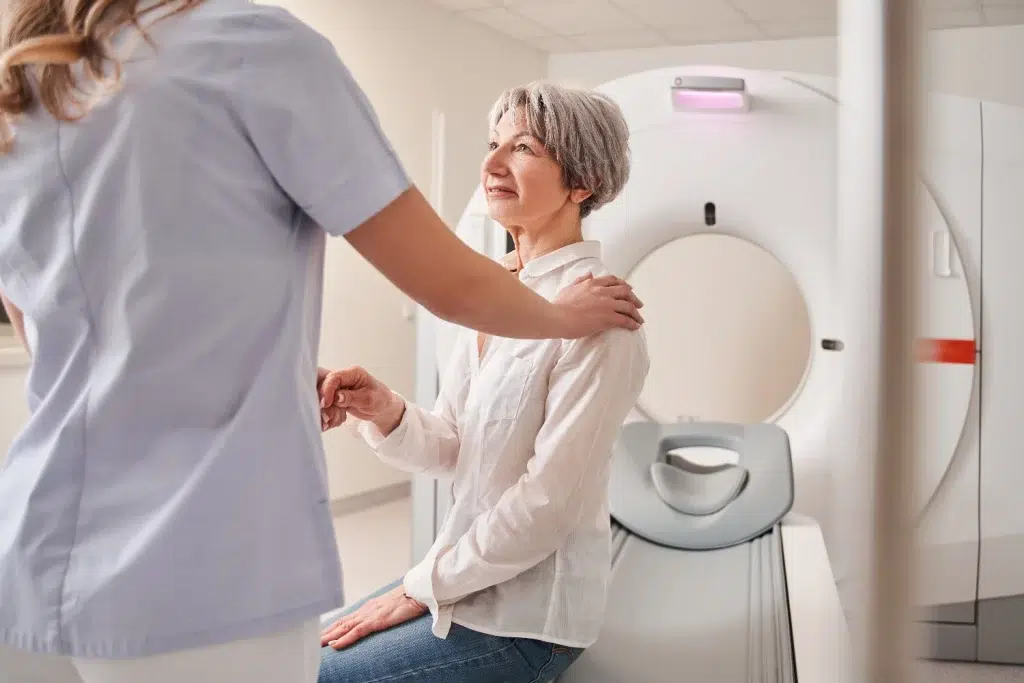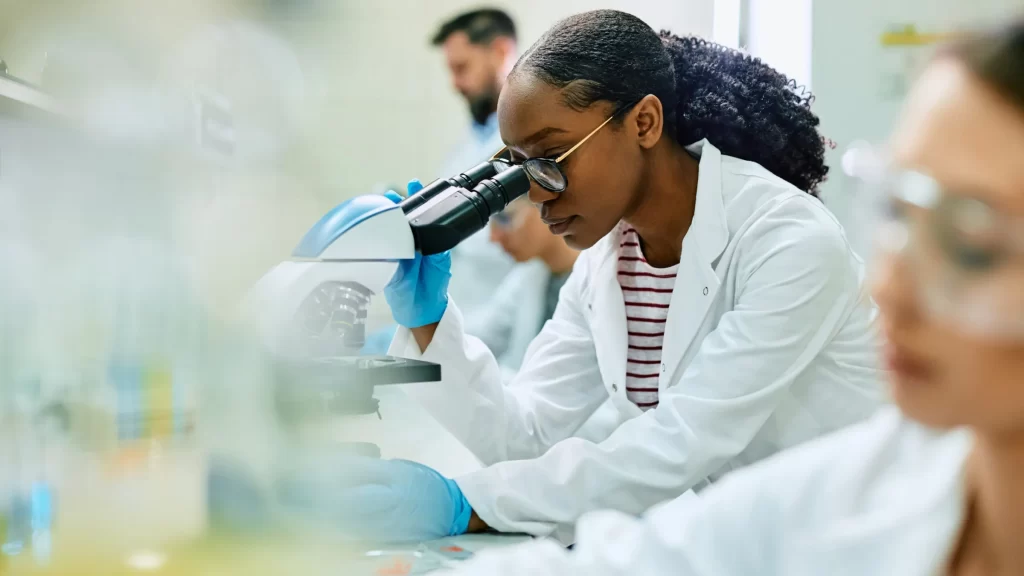For centuries, the narrative surrounding women’s brain health has been overshadowed by pervasive biases and misconceptions.
Women have often been deemed less intelligent, with supposedly inherent limitations in brain anatomy and capacity.
This skewed perception was deeply entrenched in the medical field, affecting research, diagnosis, and treatment of women’s health conditions.
These biases highlight an urgent need for a reformed approach that acknowledges and addresses women’s unique health challenges, both neurological and otherwise.
“The predominance of male physicians has sometimes resulted in a communication style with women patients that may not fully acknowledge their concerns or experiences, inadvertently fostering an environment where misdiagnosis and under-treatment are more likely to occur.”

Historical bias and misdiagnosis in women’s health
Biases in women’s brain health have been notably influenced by prominent figures like Sigmund Freud, who asserted that women were more prone to hysteria due to their biological and emotional states. This contributed significantly to gender disparities in healthcare.
Similarly, Jean-Martin Charcot’s studies on hysteria and Paul Broca’s ideas about the implications of brain size have perpetuated notions of female fragility and intellectual inferiority, leading to widespread under-treatment and minimal research into conditions uniquely affecting women.
Dr. Lise Eliot, Professor of Neuroscience at the Chicago Medical School at Rosalind Franklin University of Medicine and Science, addressed the size difference between women’s and men’s brains on our podcast ‘Your Brain On… Being A Woman’, saying: “There’s one unequivocal difference, an unambiguous difference, which is: men have larger brains than women. It’s about 11% difference, at least in the North American and European populations that have been most studied. Brain size varies with body size. And of course, men have bigger bodies than women. They are 9% taller and 18% heavier on average. Bigger bodies need bigger brains.”
Working toward equality in healthcare
The predominance of male physicians has sometimes resulted in a communication style with women patients that may not fully acknowledge their concerns or experiences, inadvertently fostering an environment where misdiagnosis and under-treatment are more likely to occur.
This scenario — not necessarily born of ill intent, but perhaps from unchallenged medical traditions — has widened the gap in healthcare quality between sexes.
The history of healthcare for women is marked by practices that cast long shadows over the legacy of medicine. The use of lobotomies stands out as a particularly egregious example. A procedure once heralded as a breakthrough, but now viewed with horror. Applied far more frequently to women, lobotomies were often prescribed to manage behaviors considered unruly or inconvenient, without true consideration for the individual’s well-being or consent.
In our podcast ‘Your Brain On… Lobotomies’, we shared the story of Rosemary Kennedy, sister of President John F. Kennedy, whose father decided she should undergo a prefrontal lobotomy when she was 23, physically cutting connections in her brain in an attempt to treat what her family deemed ‘erratic behavior’. And in another episode, ‘Your Brain On… Being A Woman’, we highlighted other historic women whose conditions were given dismissive diagnoses, like renowned Mexican artist Frida Kahlo and iconic American writer Virginia Woolf.
This dark chapter is a stark reminder of past abuses, and a call to action for the medical community to continue reshaping healthcare systems in a way respects all patients’ autonomy and rights, ensuring that such violations of trust and compassion are never repeated. When we understand and acknowledge these mistakes, the path forward promises commitment to ethical standards and empathy in patient care, where the dignity of every individual is upheld.
To quote Ayesha from our ‘Being A Woman’ episode: “When Rosemary Kennedy’s life was destroyed by her lobotomy, the doctor who led the procedure went on to perform thousands more. Most of his lobotomies were conducted on women.”

Research gaps and the future of women’s healthcare
In spite of recent progress, the oversight in women’s health research remains a prevalent issue, impacting how female-specific health concerns are understood and addressed.
This gap is particularly evident in areas like menopause research, which has significant implications for women’s overall health and well-being.
Neuroscientist and educator Dr. Lisa Mosconi, whose book ‘The Menopause Brain’ was published in March 2024, joined us on ‘Your Brain On… Alzheimer’s’, saying: “There’s evidence, especially as related to Alzheimer’s disease, longer estrogen exposure throughout a woman’s life is protective, which is a very important thing to consider because so many women go through menopause for surgical reasons and they just do not receive counseling around brain health or Alzheimer’s prevention.”
Recognition of these research deficits has sparked a movement towards more inclusive and comprehensive health studies. Initiatives focusing on the female brain, the effects of hormonal changes on mental health, and other sex-specific challenges are gaining traction.
Dr. Mosconi continued: “It’s going mainstream. Maria Shriver is talking about menopause. Halle Berry is talking about menopause. There’s so much more empowerment. I think that our generation of women are just done being patronized and being put down and just being patted on the head. They want solutions, and they want the research.”
Empowering women’s brain health requires a multifaceted approach that addresses longstanding biases and embraces gender-sensitive healthcare practices. This effort must be championed by the medical community, researchers, and policymakers alike, all of whom play a crucial role in reshaping how women’s health issues are approached and treated.
Dr. Margaret McCarthy, renowned for her research into the neuroscience of sex differences, said this on ‘Your Brain On… Being A Woman’: “This is where the difference in the hormonal milieu of a 60-year-old woman and a 60-year-old man could be so profoundly important, because he has lots of testosterone. It might be not what it was when he was 20, but there’s still a lot, whereas she, by and large, has very little steroid hormone. And we could do better at understanding that: what are the good parts about having a hormone replacement therapy, and what are the actual risks? There’s a real urgent need for a lot more research in that area.”
The push for equity in women’s brain health, while challenging, is an essential endeavor to ensure that all women receive the comprehensive and empathetic healthcare they need.
The story of women’s brain health up until now is a testament to resilience in the face of systemic bias and neglect. As society progresses, the focus must shift to understanding, researching, and addressing the unique health challenges faced by women.
Only through dedicated and intentional efforts can we hope to close the gaps in women’s healthcare and ensure a future where women’s health is no longer an afterthought, but a priority.
The time to act is now. The health of our mothers, sisters, and daughters depends on it.

About The Author
Dean Sherzai, MD, PhD
Dr. Dean Sherzai is co-director of the Alzheimer’s Prevention Program at Loma Linda University. Dean trained in Neurology at Georgetown University School of Medicine, and completed fellowships in neurodegenerative diseases and dementia at the National Institutes of Health and UC San Diego. He also holds a PhD in Healthcare Leadership with a focus on community health from Andrews University.
Get more brain science direct to your email inbox
Sign up for the Brain Docs newsletter for weekly recipes, brain teasers, neuroscience facts, podcast updates, and more — for free!



